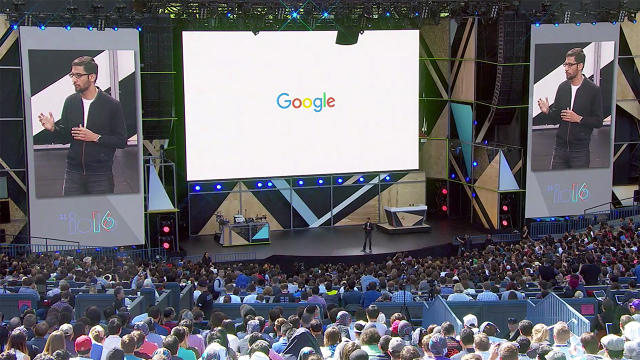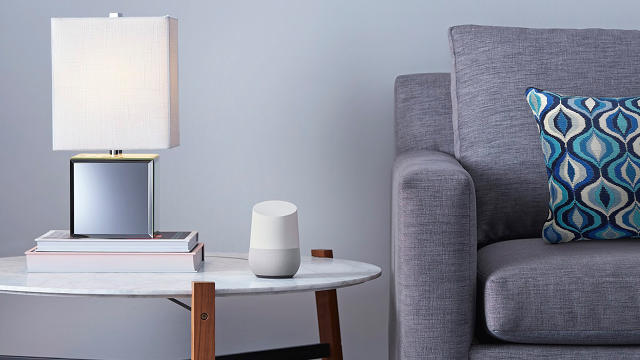How Google Search Got Past “10 Blue Links”
For years, tech companies launching new search tools would confidently announce that they’d come up with a new way to do search that was superior to providing a page of results with “10 blue links” to relevant websites. Microsoft made that claim. So did Yahoo. So did multiple startups.
Dissing blue links was pretty much a way of declaring that you’d beaten Google at its own game without quite saying so, and it always struck me as a bit misguided. After all, Google’s search engine and its link-heavy results pages just kept dominating the search business, which was proof that most folks were still happier with 10 blue links than with any of the supposedly superior alternatives.
But at this morning’s Google I/O conference keynote, even Google CEO Sundar Pichai made a “10 blue links” reference that framed it as an old-school way of providing search results:
Pichai’s remark came during a keynote that was heavy on announcements involving search scenarios, such as using the Google Assistant voice-powered service via the upcoming Google Home speaker. When a device doesn’t even have a screen, blue links are a nonstarter, which means that the experience can’t bear much resemblance to Google search in its most classic form.
But as I thought about today’s news, it dawned on me that Google, as much as anyone else, has been trying to render blue links obsolete. It’s just been less obvious, because the company didn’t attempt to move past them in one great leap. Instead, it’s kept the links while slowly, quietly, and ambitiously planning for the day when they will indeed feel archaic.

Links, Plus More
In retrospect, the evidence was there at least as long ago as 2007, when a Google VP named Marissa Mayer showed off Google Universal Search, a new feature that intermingled blue links with maps, videos, and other elements. Then in 2008, the company released the original Google Voice Search app for the iPhone, which didn’t dispense with blue links altogether, but only showed them when it was unable to come up with something more instantly useful and small-screen friendly.
In 2013, when I visited Google to learn about its vision for the future of search, its staffers told me they wanted to build an interface as smart, conversational, and generally approachable as Star Trek‘s computer. They were making huge strides at the time—from creating voice recognition that actually worked well to teaching computers to understand that Justin Bieber is a human being with a height, an age, and other attributes—and continue to do so.

The work Google showed me during my visit was obviously visionary, but I didn’t realize at the time that the company was preparing itself for search scenarios in which links of the conventional sort would be not just unwieldy but impossible. Search scenarios such as, for instance, one in which you talk to a speaker and it talks back to you. That’s the idea that Amazon’s Echo has pioneered and Google’s Home is expanding upon. And the fact that Google has been investing so much energy in the future of search for so long gives it a good shot at successfully competing with Amazon, which will (probably) never compete with Google when it comes to organizing the world’s information and making it universally accessible.
That’s how fast things can change in this industry: An aspiration that in 2013 required allusions to Star Trek now can be most easily understood as Google wanting to build something conceptually similar to what Amazon has created with Alexa and Echo, but much deeper and even more useful.
Google still seems actively disinterested in tampering with its search interface, simply for the purpose of coming off as being inventive. Just as in 1998, if you go to Google.com in a web browser, you’ll get a mostly white page with a Google logo plus search and “I’m Feeling Lucky” buttons. Just as in 1998, one of the most important things that browser-based Google search does is to return a list of links to useful websites, ranked in order of relevance.
But there’s nothing about where Google currently finds itself that suggests it didn’t understand how search is changing or failed to move swiftly enough to maintain its position. That’s true, even though some of its efforts—such as mixing personal search results with web ones and behaving as if Google+ might replace Google—haven’t panned out. And it’s why it seems entirely possible that the company will retain its commanding role in search—even once the age of blue links is undeniably over.
Fast Company , Read Full Story
(9)













